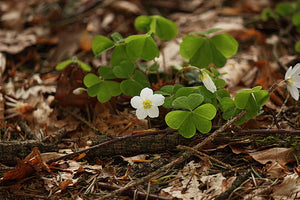Cart
0
Defining Ecological Collapse:
- Beyond the Breaking Point: Ecological collapse occurs when an ecosystem undergoes a drastic, often irreversible, decline. It's a point where the delicate balance that sustains life within an ecosystem is disrupted to the extent that recovery becomes challenging.
- Ripple Effect: Much like a house of cards, an ecological collapse in one area can have far-reaching consequences. The effects can cascade through interconnected ecosystems, affecting biodiversity, climate, and human well-being.
Signs and Symptoms:
- Loss of Biodiversity: One of the early indicators of an impending collapse is a significant decline in the variety and abundance of species within an ecosystem. This can disrupt the intricate web of interactions that support life.
- Disruption of Ecosystem Services: Ecosystems provide services crucial for human survival, such as clean air, water purification, and pollination of crops. As an ecosystem collapses, these services diminish, directly impacting our quality of life.
- Climate Extremes: Ecological collapse can contribute to climate instability. For example, the destruction of forests, a key component of many ecosystems, reduces the planet's capacity to absorb carbon dioxide, leading to accelerated climate change.
- Collapse of Food Webs: Ecosystems rely on complex food webs where each species plays a role. If key species disappear, it can lead to imbalances, affecting both predators and prey.
- Habitat Destruction: Human activities, such as deforestation and urbanization, contribute significantly to habitat loss. As habitats disappear, the species that depend on them face increased risk, pushing ecosystems closer to collapse.
Why Should We Care?
- Impact on Human Health: Ecological collapse isn't just about saving trees and animals; it's about safeguarding our health. Disrupted ecosystems can lead to the spread of diseases, loss of clean water sources, and reduced availability of nutritious food.
- Economic Consequences: The collapse of ecosystems can have profound economic impacts. Agriculture, fisheries, and tourism—all dependent on stable ecosystems—suffer when these systems fail.
- Loss of Cultural Heritage: Many indigenous cultures have deep connections to their local ecosystems. Ecological collapse not only threatens their way of life but erodes the rich tapestry of human cultural diversity.
- Global Interconnectedness: In our interconnected world, no one is immune to the effects of ecological collapse. A crisis in one part of the globe can reverberate globally, affecting economies, climate patterns, and the well-being of people everywhere.
How Can We Prevent Ecological Collapse?
- Promote Sustainable Practices: Support products like our Bamboo Toilet Papers, which are made from a rapidly renewable resource. Sustainable choices contribute to the health of ecosystems.
- Advocate for Conservation: Join or support organizations working to conserve critical ecosystems. Every effort counts, whether it's planting trees, cleaning up natural habitats, or advocating for policy change.
- Support Conservation Policies: Advocate for policies that protect and restore ecosystems. Governments and businesses play a crucial role in shaping practices that promote sustainability.
SO . . . .
As we wrap ourselves in the comfort of our Bamboo Toilet Papers, let's also embrace a commitment to a planet where ecosystems thrive, and ecological collapse is but a distant threat. Together, we can make choices that protect the delicate balance of our world for current and future generations.
Read more:
- Discovering Nature's Soul: The Heart of Environmentalism
- Healing the Earth: Unraveling the Mysteries of Acid Rain
- Embracing Sustainability: Why Ecosystems Matter







